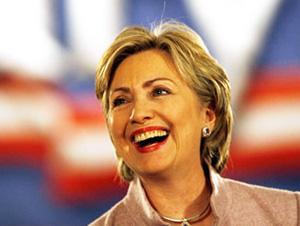Iowans struggling with a legacy of never electing women as governor, to national office
Just two states have never sent a woman to Congress, nor elected one as governor.
But just one of them holds the distinction of being the first place in the nation where voters get to pass judgment on political candidates. Iowa, along with Mississippi, has never sent a woman to the U.S. House of Representatives nor to the U.S. Senate, despite women having the right to vote for nearly a century.
Former Iowa State Senator Maggie Tinsman, co-founder of the 50/50 in 2020 campaign, said Iowa has been very conservative when it comes to getting women involved in politics — but she hopes to turn that around.
“I think that’s changing with younger women, so we’re hoping to have more women run in 2012,” she said.
Tinsman said that she and other women face an uphill battle whenever they run for elected office, because women haven’t historically been involved in politics in Iowa. The 50/50 campaign seeks to recruit enough female candidates and have had them run enough so that by the 100th anniversary of women’s suffrage, women make up half of the Iowa legislature and half of Iowa’s delegation to the U.S. Congress.
But Tinsman doesn’t think this failure to elect women should endanger Iowa’s first-in-the-nation voting position.
“All Iowans are really very thoughtful in this whole cacaus process. They really take this seriously and want to meet the candidates,” Tinsman said.
Dianne Bystrom, director of the Center for Women and Politics at Iowa State University, said there’s been a lack of opportunity for women to win in recent years. Because women have run as challengers, they’ve had just a 15 percent chance of winning election.
“What we really need to do is recruit women to run and then work with the political parties to make sure they’re running in open seat races,” Bystrom said. “That’s when we’re going to have an opportunity to send a woman to Congress.”
Bystrom said Iowa doesn’t have a history of electing women, so voters don’t as easily see women in high office.
“I think that happened to Hillary Clinton (in 2008,)” she said. “There was a lot of anecdotal evidence that year. People would say to me, ‘I’d like to elect a woman as president but Hillary Clinton just isn’t perfect enough.’ “
Bystrom said voters tend to hold women to a higher standard than they do men candidates.
Tinsman agreed and said women tend to be more critical of other women. Though she doesn’t think this is necessarily Michelle Bachmann’s problem. She said she’s struggling more with choosing to focus on social issues, which don’t resonate as well with Iowa voters.
Our coverage reaches millions each week, but only a small fraction of listeners contribute to sustain our program. We still need 224 more people to donate $100 or $10/monthly to unlock our $67,000 match. Will you help us get there today?
